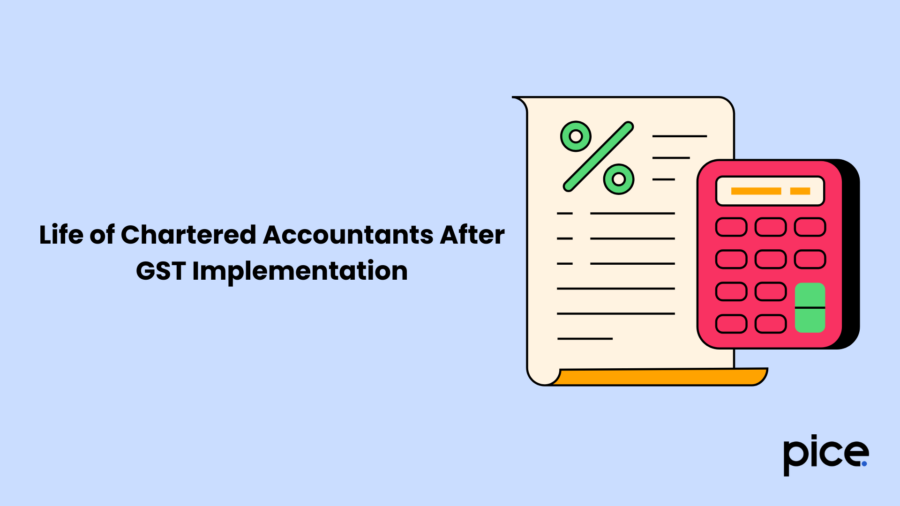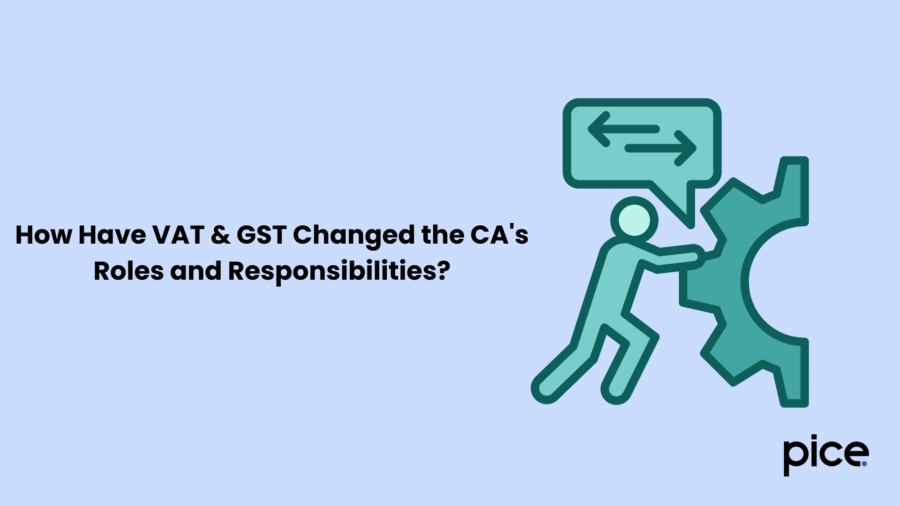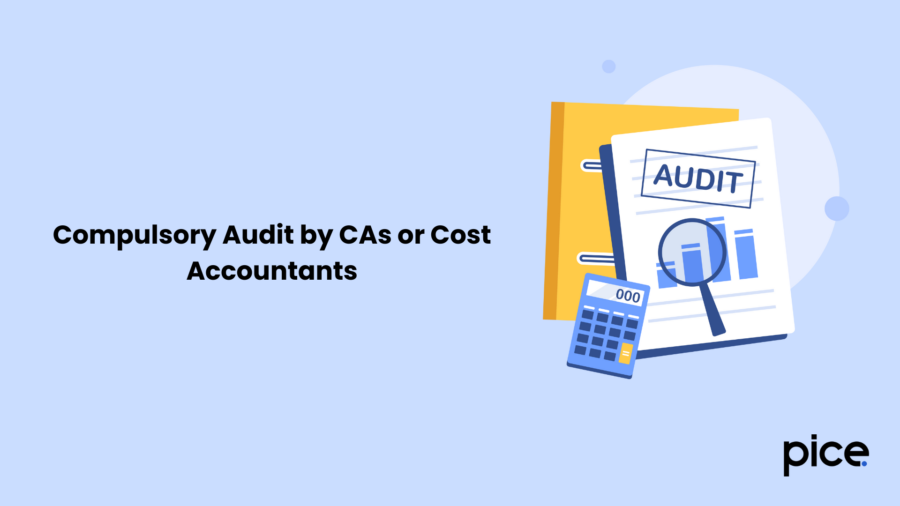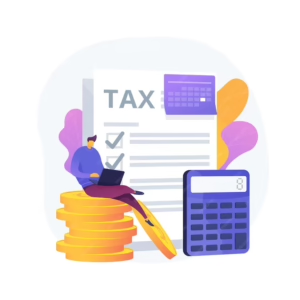Impact of GST on Chartered Accountants Life
- 19 Jun 25
- 9 mins

Impact of GST on Chartered Accountants Life
Key Takeaways
- GST expanded the scope of services offered by Chartered Accountants across India.
- It created equal growth opportunities for both new and experienced CAs.
- Automation and online compliance under GST reduced manual workload significantly.
- CAs evolved from tax advisors to strategic business consultants post-GST.
- Consistent demand for GST-related services has increased CA clientele and revenue streams.
The Goods and Services Tax (GST) was passed in both houses of Parliament after more than a decade of anticipation. Simultaneously, it brought new opportunities for businesses and individuals in India. Chartered Accountants were no exception, as the GST framework brought multiple changes to their established work methods.
One of the biggest challenges for CAs was understanding the individual sections of the GST law. They needed to be updated on the latest legal developments. Only that way would they be able to offer their clients timely and helpful advice.
This blog is about how the impact of GST on chartered accountants has reshaped their roles and services over the years. Consequently, these professionals could better guide businesses in navigating and complying with the new regulations.
Life of Chartered Accountants After GST Implementation

GST has improved the scope of services offered by CA professionals by growing demand for solutions like:
- GST registration
- Income tax filing
- Tax advisory
- Compliance audits, etc.
Now, chartered accountants play a crucial role than ever in helping companies handle the complications of the GST law.
Simply put, business owners have to stay in touch with CA professionals for time-to-time counselling and miscellaneous services like ITR filing, accounting, several registrations, and so on. All these aspects have resulted in an increase in CA's clientele.
Boon for New Chartered Accountants in India
For individuals who have acquired a CA licence recently, GST has emerged as a life-saving tool. As the legal framework is totally new in India, now both the experienced as well as newly licensed CAs are on the same page. This typical situation has given the new chartered accountants an advantage to move forward in their careers faster.
Growth of Revenue Due to Compliance at Different Services
The GST law enables CAs to offer a collection of solutions apart from handling GST compliances, like GST registration, accounting services, timely tax disbursements, etc. These new additions will create a stable income stream as professionals are getting the opportunity to earn repeatedly from the same clients.
In addition, the earning phase for a CA will likely begin when their clients are adequately educated and transitioned under the purview of GST. The CA community can push for this move as compliance with GST will directly influence a considerable hike in business revenue. This boost in income will reasonably support both seasoned and new chartered accountants.
Ease of Doing CA Work
Earlier both chartered accountants and their clients used to be on the verge of making compliance mistakes as the taxation system was very complicated. Before GST was implemented, a bunch of indirect taxes like VAT, service tax, excise tax, and CST used to exist. Taking all of these components into account frequently caused issues, sometimes even without the CAs realising them.
After the GST came into force, the overall workload of the Chartered Accountancy Services community was considerably reduced. It made tax consulting and compliance services a lot simpler.
How Have VAT & GST Changed the CA's Roles and Responsibilities?

In previous years, a significant volume of responsibilities was handled manually, which wasted time for chartered accountants. However, under the GST regime, most of the work is executed online, making the tasks easier and saving much precious time.
Earlier, when VAT was imposed, CA professionals could work with clients only in a few restricted states. This happened because every state had its own different tax reforms and legal structures. But as GST came into effect, businesses were now concerned with the same GST return from across the country. Consequently, this expanded the working opportunities for chartered accountants.
Besides, in VAT, the CAs would upload the tax return filing on a monthly basis, and they had to fill out the purchase and Sales registers alongside the main annual return. Once the whole thing is scrutinised, and if any input tax credit discrepancy is found, then the whole procedure needs to be repeated. It used to be a tedious task for CAs.
Under the GST, the details are automatically displayed in the corresponding purchase register when someone uploads their client's sales register. Therefore, the workload has been significantly reduced. Most importantly, the discrepancies have been minimised after the new practice was implemented.
What are the opportunities for chartered accountants in GST?
Chartered accountants who are already practising sales tax or other indirect taxes can potentially find the details of GST law easily. This is because most of the GST provisions are derived from VAT/ service tax/ central excise tax rules.
Given below are several services provided by CAs that can offer great value to business entities under the GST regime:
1. Study Impact on GST
The GST framework can be positive for manufacturing units, as the simplified tax structure means greater efficiency for manufacturers, followed by reduced cost of production. However, the impact on businesses in other services like pharma, media, textile, IT, and dairy products is somewhat negative.
Thus, various business operators must know the time limit for paying taxes and how to avoid penalties. Chartered accountants can assist them by proposing practical tax-saving opportunities.
2. Guide in the Transition Phase of GST
When businesses transition to the GST legal structure, it can involve several critical aspects, such as modifying agreements, identifying eligible credits, training vendors, and so on. Chartered accountants can guide entrepreneurs through these elements.
Moreover, with complete GST automation and minimal manual intervention in the future, ERP deployment will function as an independent service offered by CAs.
3. Training of Entities for Compliance with GST
In the early stages, businesses faced many hassles in implementing GST regulations. Every department, such as sales, marketing, accounts/ finance, etc., was in a hurry to grasp the fundamentals of GST. At that moment, chartered accountants were the only people who could act as helping hands.
4. Business & Firm Consultant
Once GST was fully implemented, CAs started working as business consultants. Previously, their role was restricted to mere tax consultants, but now they are hired to guide the design of business SOPs, provide tax advice, assist with business structuring, etc.
5. Regular Review / Compliance Assistance of GST
The impact of GST on chartered accountants in this regard is quite positive as now maintaining business compliances has become the utmost priority.
After GST, CAs are responsible for regularly reviewing the records for availability of credits, timely payment of income tax, etc. It has enhanced their scope of work as now they can assist businesses manage crucial elements effectively thereby accessing deductions.
6. Compulsory Audit by CAs or Cost Accountants

Now, every taxpayer must hire cost accountants or CAs to audit their books of account upon completing a certain turnover limit as per Section 42 (4) of the GST law. At present, this is still controlled by VAT laws in respective states. However, chartered accountants will take the mandatory audits after the complete implementation.
7. Dispute Avoidance and Resolution
As the GST framework passes through its early stages, many issues can arise for which businesses must have a conflict resolution process. Chartered accountants, as well-qualified professionals, can fill this role.
8. Refunds Certificates
Under the GST regime, taxpayers can expect refunds way faster. Once a person completes the documentation process by uploading all required documents, up to 80% of the refund can be disbursed immediately.
Even with well-streamlined GST law, needs of refund requests can be occasionally necessary. Hence, for CAs, this would indicate consistent opportunities.
Conclusion
Overall, different GST-related services have now transformed the paths of the chartered accountants in India. Each of these services proceeding from simplified complex tax structures has opened up new horizons in areas dealing with advisory services, automation services, and compliance.
Most of all, the major impact of compliance with GST laws on chartered accountants is a total change in the shape of today's business ecosystem in which the CAs are working. Both experienced and new entrants will find new growth opportunities, as companies now would require the talent offering smooth transition to GST, GST compliance, and effective strategic planning.
The GDP does not only serve as a challenge but it will also serve as a catalyst in changing the CA profession as it widens the scope of services offered and increases demand for qualified CAs.
💡If you want to streamline your invoices and make payments via credit or debit card or UPI, consider using the PICE App. Explore the PICE App today and take your business to new heights.
 By
By 

















